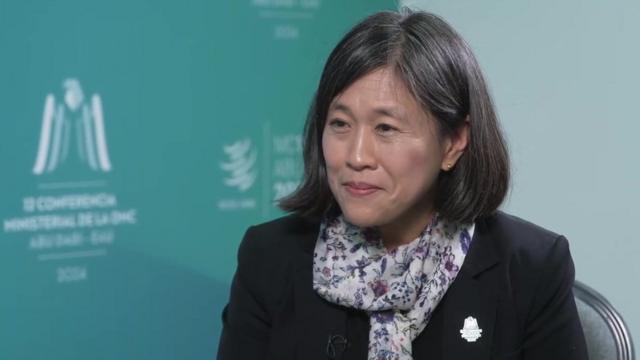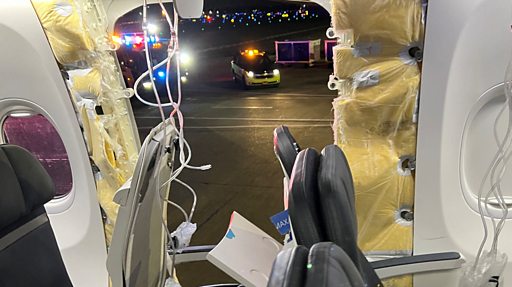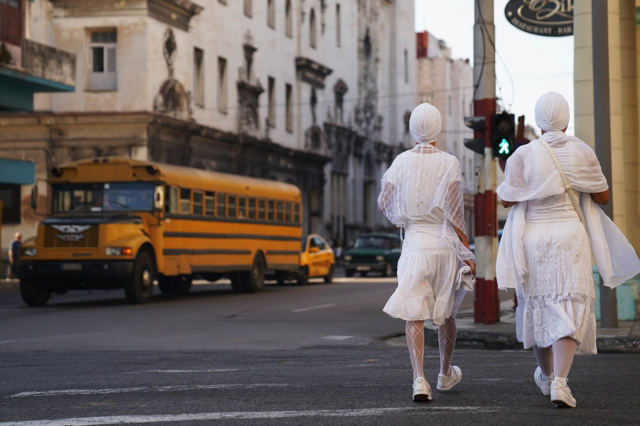談及中美貿易摩擦,中國常駐WTO代表團大使張向晨連用兩個反問句
5月16日,彭博社刊發中國常駐世貿組織代表團大使張向晨專訪文章,從中美貿易摩擦等熱點話題切入。
張向晨認爲,中美在經貿領域顯然存在利益交集,但需要以誠意來尋找。中美兩國之間很多問題具有複雜性,通過溝通、談判解決彼此的貿易關注是一項長期的任務。舉起大棒,是錯誤地對待別人的問題,放下大棒,才能正確地面對自己的問題。“短期內,我也相信中美有足夠的智慧找到辦法解決雙邊經貿關係中的緊迫問題,拭目以待。”
針對彭博社援引美國大使丹尼斯·謝伊的話稱“中國是‘破壞全球開放和公平貿易體制’的‘單邊主義者’。並稱中國是‘最具保護主義,重商主義的經濟體’,自稱是‘自由貿易和全球貿易體系的捍衛者’。”張向晨連用兩個反問句予以回擊:“我在世貿組織總理事會上講過,衡量單邊主義的標準只能是多邊規則,而不是憑什麼人亂扣帽子。你見過主動降低關稅、開放金融市場的‘保護主義者’嗎?你見過積極籌備進口博覽會、歡迎各國出口至本國市場的‘重商主義者’嗎?”

張向晨
本月早些時候,中美兩國舉行了首輪貿易談判。對此,彭博社在提問中稱,在北京結束的中美高層貿易談判表明雙方差距巨大。據說美國已要求中國在2020年前將貿易順差至少減少2000億美元,並且不得對美國擬議的關稅措施進行報復。
在被問及上述要求是否符合WTO規則,中國接受這些要求的可能性有多大時,張向晨表示,在多邊貿易體制上,曾有過極個別“進口承諾”的事例。這種做法違反世貿組織“非歧視原則”,早已成爲歷史陳跡。而所謂的“自願出口限制”,毫無例外地都不是“自願”的,也爲多邊紀律所不容。“美國一方面指責中國政府幹預經濟,一方面又要求中國以政府命令方式增加進口、限制出口、減少過剩產能,這在邏輯上是說不通的。貿易是你情我願的交易,政府可以做一些貿易促進工作,但不能用槍頂着企業去做。”
上個月,美方揚言考慮對中國1500億美元商品加徵關稅。對於彭博社有關中國還有什麼工具可以抵消加徵關稅威脅的提問,張向晨表示,作爲一個大國,中國的政策工具箱裏當然會有“十八般兵器”,但絕不會輕易使用。用不用、用哪件、何時用,需要根據形勢發展而定,但目的只有一個,恢復正常的貿易秩序,“止戈爲武”。
同樣是在上月,中國分別就美“301條款”和“232條款”措施在WTO爭端解決機制下提出訴訟。張向晨告訴彭博社,關於“301條款”案,中方的目標是將這隻猛獸重新關進世貿規則的籠子裏,不再讓它興風作浪。關於“232條款”案,中方希望藉此恢復所有成員對“國家安全”問題原有的審慎態度。

根據商務部資料顯示,今年53歲的張向晨(1965年生人)目前爲中國常駐世貿組織代表、特命全權大使。此前,他爲中國國際貿易談判副代表,是國內精通世界貿易的專家之一,主張世界貿易自由化、反對貿易戰。
據悉,張向晨曾於2008年至2011年在中國駐日內瓦世貿組織辦事處工作,就任代表團副團長。
彭博社曾報道稱,特朗普在美國總統大選獲勝後,張向晨是首位向外國商界介紹中國領導層如何看待世界經濟未來的官員。在北京一場中國美國商會舉行的晚宴上,他就新形勢下應避免貿易戰進行了闡述。
以下爲彭博社採訪全文,共六個問題,商務部全文翻譯,轉自微信公號“商務微新聞”:
5月16日,彭博社刊發中國常駐世貿組織代表團大使張向晨專訪文章,從中美貿易摩擦等熱點話題切入,六問六答,金句頻出。
談及中美貿易摩擦,張向晨大使爲何連用兩個反問句?
Q&A
1、彭博社:中國在WTO就美國“301條款”和“232條款”下的貿易措施提出訴訟。最新進展怎樣?解決爭議的可能性如何?
China has filed complaints about the U.S. trade actions under Section 301 and Section 232 at the WTO. What’s the latest progress? What’s the likelihood of getting a dispute settlement?
張向晨大使:上月初,中國分別就美“301條款”和“232條款”措施在WTO爭端解決機制下提出訴訟。這兩個條款違反哪些規則、中方起訴背景和所持立場,我不一一贅述。
China submitted complaints to the WTO dispute settlement mechanism on the US Section 301 and Section 232 measures early last month. I would not elaborate on the measures or how they have violated the WTO rules, which I had clearly stated at the WTO general council meeting last week.

關於“301條款”案,我們的目標是將這隻猛獸重新關進世貿規則的籠子裏,再也不讓它跑出來興風作浪。關於“232條款”案,我們希望藉此恢復所有成員對“國家安全”問題原有的審慎態度。
Rather, I want to emphasize that our objective for the Section 301 case is to lock this beast back into the cage of the WTO rules, stop it from causing any further harm to any members. By initiating the Section 232 case, we want to restore the self-restraint and caution exercised by Members with regard to the “Security Exceptions” clause.
中國將按照WTO爭端解決程序繼續推進這兩項訴訟。WTO爭端解決機制應當有能力解決這些爭議,維護正常的國際經貿秩序,這正是爭端解決機制建立的初衷。
China will proceed with these two cases in accordance with the WTO dispute settlement procedures. I am confident that the WTO dispute settlement mechanism is capable of resolving these disputes and safeguarding the normal order of international trade, which is exactly the intent of establishing the dispute settlement mechanism.
2、彭博社:美國大使丹尼斯·謝伊最近在世貿組織總理事會上說,中國是“破壞全球開放和公平貿易體制”的“單邊主義者”。他還稱中國是“最具保護主義,重商主義的經濟體”,自稱是“自由貿易和全球貿易體系的捍衛者”。你的論點是什麼?其他成員對此如何看?
U.S. Ambassador Dennis Shea recently said at a WTO general council meeting that China is the "unilateralist" which "undermines the global system of open and fair trade". He also called China "the most protectionist, mercantilist economy" that claims it is the "defender of free trade and the global trading system." What’s your counter-argument and how do other members view this?
張向晨大使:我在世貿組織總理事會上講過,衡量單邊主義的標準只能是多邊規則,而不是憑什麼人亂扣帽子。你見過主動降低關稅、開放金融市場的“保護主義者”嗎?你見過積極籌備進口博覽會、歡迎各國出口至本國市場的“重商主義者”嗎?
As I was saying at the meeting, it is the multilateral rules which can serve as the one and only criterion to determine unilateralism rather than throwing labels around. Have you ever seen a “protectionist” who is voluntarily cutting tariffs and liberalizing its financial market? Have you ever seen a "mercantilist" who is hosting an International Import Expo and welcoming other countries to export to its market?

中國也很願意和美國在WTO討論一下什麼是“單邊主義”。我們應當通過討論和談判解決彼此的貿易關注。在WTO框架下討論、談判,包括訴諸爭端解決機制來裁決彼此的分歧,這些都是多邊主義的體現。反之,如果所有成員都按照自己的立場、標準對其他成員進行評判,並任意採取制裁措施,例如像“301條款”這樣的措施,那就是對多邊主義的破壞。
China is very much willing to further discuss with the U.S. regarding “unilateralism" in the WTO. Trade concerns should be addressed through discussions and negotiations under the WTO framework, including resorting to the dispute settlement mechanism. This is the way multilateralism works. By contrast, if members take WTO law in their own hands, judge and sanction others by their own standards, such as the Section 301 measures, it would be a breach of multilateralism.

至於其他成員對此評論,建議你看一下總理事會各成員的發言。此次會議上,100多個世貿成員在總理事會上單獨或者聯合發表聲明,要求儘快啓動上訴機構成員遴選,反對美國依據“232條款”、“301條款”採取的單邊行動和貿易保護主義措施,呼籲維護多邊貿易體制的權威和穩定。這些立場世貿組織都記錄在案,歷史不應隨意被人解讀,更不應被歪曲篡改。
As for the comments from other members at the meeting, I would suggest you look at the statements by relevant members. More than 100 WTO members have either spoken individually or co-sponsored joint statements at the General Council meeting, urging members to launch the new appellate body member selection process without delay, opposing the unilateral and protectionist actions taken by the U.S. based on Section 232 and Section 301, as well as calling for safeguarding the credibility and stability of the multilateral trading system. These statements and positions are well recorded by the WTO secretariat. History is not and should not be wrongfully interpreted or twisted.
3、彭博社:你有數十年與美國談判的經驗。你對目前的中美貿易摩擦有何看法?如何解決呢?
You have decades of experience negotiating with the U.S. What’s your view on the current China-U.S. trade dispute and how can it be solved?
張向晨大使:時過境遷,過去的經驗未必有用。21世紀不是20世紀80年代,北京也不是東京。
Water flows, things change. Past experience is not necessarily helpful in tackling today’s problems. We must be clear that the 21st century is not the 1980s, and Beijing is not Tokyo.














